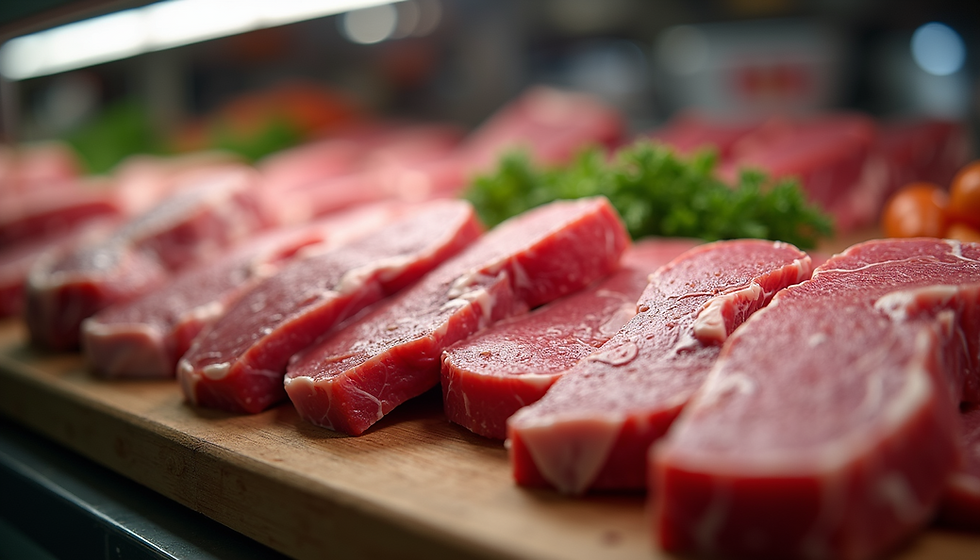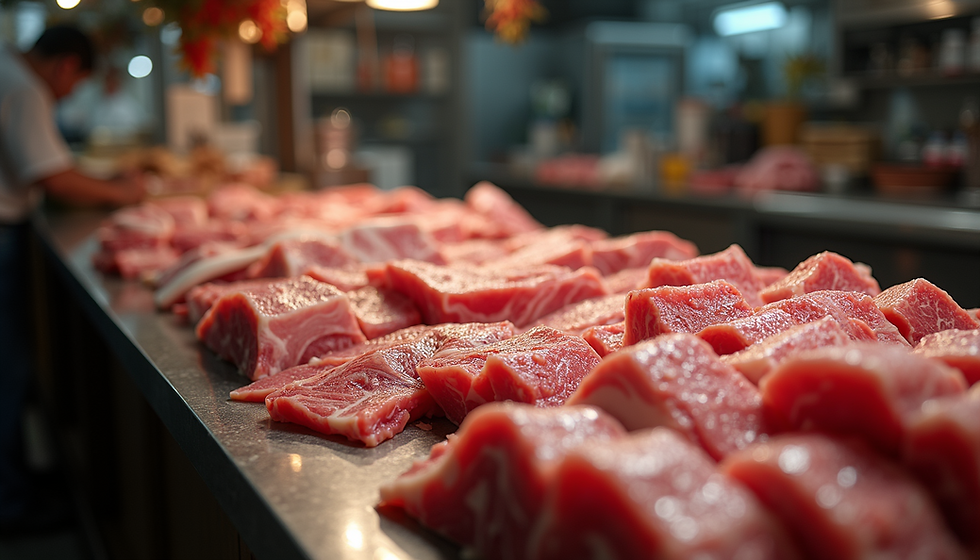Exploring the Role of Food Wholesalers in Melbourne's Supply Chain
- Team @ Ezy Click Answers
- Jun 3, 2025
- 4 min read
Melbourne is recognized for its vibrant food culture, and at the core of this dynamic industry are food wholesalers. These intermediaries play a crucial role in connecting producers to retailers and restaurants, ensuring that high-quality ingredients are available to consumers. Understanding the contribution of food wholesalers to Melbourne's supply chain is essential for anyone involved in the food industry.
Food Wholesalers: Connectors of Supply and Demand
Food wholesalers are critical players in the food supply chain. They serve as the middlemen between manufacturers and retailers, managing large volumes of products. This can include fresh produce, meats, dairy, and packaged goods.
Wholesalers buy their products in bulk from producers and sell them in smaller quantities to restaurants, supermarkets, and other retailers. This not only helps producers reach a wider audience but also allows retailers to stock a variety of goods without the burden of maintaining extensive inventory.

For instance, in Melbourne, one of the most effective food wholesalers is Hansa Butchery. They specialize in providing quality meats to local restaurants and shops, ensuring that the standards are kept high while keeping costs manageable for business owners. By collaborating with various suppliers, Hansa Butchery Melbourne maintains a steady supply of fresh meat products to meet local demand.
The Importance of Quality and Standards
Food wholesalers in Melbourne prioritize quality. They are responsible for vetting suppliers and ensuring that the products meet health and safety standards before they reach consumers. This is crucial in maintaining the integrity of the food supply chain.
Quality control involves several aspects, including:
Supplier Audits: Wholesalers regularly audit their suppliers to ensure compliance with safety regulations.
Cold Chain Management: Maintaining proper temperature controls during transportation and storage is essential, particularly for perishable goods.
Product Testing: Many wholesalers conduct testing on product quality and safety to ensure consumers receive the best products.

In Melbourne, the strict guidelines set by the government help ensure that wholesalers can provide food products that meet consumer expectations. This rigorous oversight not only benefits wholesalers but also establishes trust with consumers and retailers alike.
The Logistics Behind Food Wholesaling
The logistics of food wholesaling can be complex, encompassing transportation, warehousing, and inventory management. Wholesalers must coordinate the movement of food products efficiently to minimize spoilage and maximize freshness.
Some key logistical functions of food wholesalers in Melbourne include:
Transportation: This involves the distribution of goods from manufacturers to the wholesaler and then to retailers. Reliable transportation is crucial in maintaining the cold chain for perishable items.
Warehousing: Wholesalers need adequate facilities to store products, particularly those that require specific conditions for preservation.
Inventory Management: A sophisticated inventory management system helps wholesalers keep track of stock levels and turnover rates, allowing for timely reordering.
The efficiency of these processes directly impacts the entire supply chain, influencing the availability and cost of food products in Melbourne.

Supporting Local Communities
Food wholesalers also play a significant role in supporting local farmers and producers. By purchasing directly from local sources, wholesalers help sustain the agricultural community, ensuring that farmers receive fair prices for their products.
This not only strengthens the local economy but also promotes sustainability by reducing transportation distances and supporting the concept of farm-to-table dining. Additionally, wholesalers can encourage the sale of seasonal produce, further linking consumers with the rhythms of agriculture in and around Melbourne.
Becoming a Food Wholesaler in Melbourne
If you are considering becoming a food wholesaler in Melbourne, there are crucial steps to take:
Understand Regulations: Familiarize yourself with local and national regulations related to food safety and wholesaling.
Build Supplier Contacts: Establish strong relationships with producers to ensure a diverse product offering.
Implement Quality Control Procedures: Create a system for monitoring and testing food quality to build consumer trust.
Invest in Logistics: Consider the storage and transportation needs of your business, making sure you can maintain quality during delivery.
Venturing into wholesaling requires dedication but can prove to be a rewarding path for entrepreneurs focused on contributing to Melbourne's rich food landscape.
The Future of Food Wholesaling in Melbourne
As Melbourne continues to grow and change, so does the role of food wholesalers. Trends such as increased demand for organic products, plant-based diets, and environmentally sustainable practices are shaping the future of the industry.
Food wholesalers will need to adapt by:
Embracing Technology: Utilizing data analytics and inventory management software to optimize operations.
Focusing on Sustainability: Offering more environmentally friendly products and practices, such as reducing plastic packaging and sourcing local produce.
Educating Consumers: Providing information about food sourcing and handling can foster consumer awareness and loyalty.
The future holds exciting potential for food wholesalers in Melbourne. By staying ahead of trends and maintaining high standards in quality and service, they will continue to play a vital role in connecting suppliers and consumers.
Food wholesalers are essential components of Melbourne's supply chain, serving as critical connectors between producers and consumers. From maintaining quality and managing logistics to supporting local businesses, their impact is profound. By understanding their role, we can appreciate the intricate web of the food industry and how it supports the diverse culinary landscape of Melbourne.



Comments